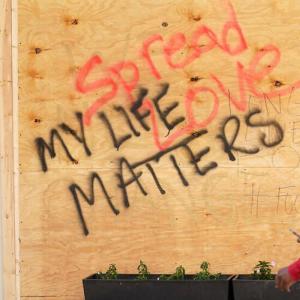
A man passes graffiti on a building a day after protests over the death in Minneapolis police custody of George Floyd in Washington, U.S., June 1, 2020. REUTERS/Kevin Lamarque
In more than 60 cities across the country, people stopped on June 1 to remember the more than 100,000 people who have died from COVID-19 as part of a National Day of Mourning and Lament.
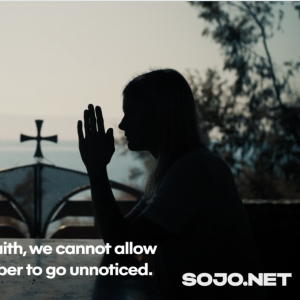
The nation must be given the chance to mourn, lament, and remember the dead.
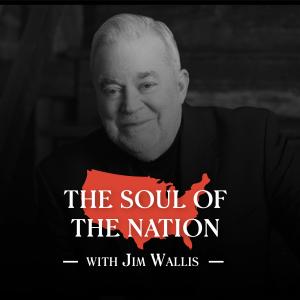
As we pass the horrifying milestone of 100,000 American deaths to the coronavirus, we’re using the hashtag #Lament100k to urge people to pause — to lament.
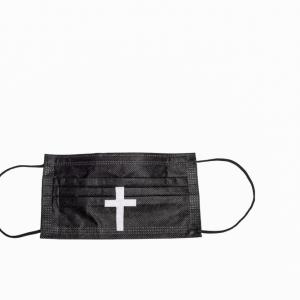
O God, we grieve the struggle of those who died alone —
so far from friends and neighbors, from all they’d ever known.
We grieve for precious people who could not say good-bye;
we weep for those, now mourning, who sit alone and cry.
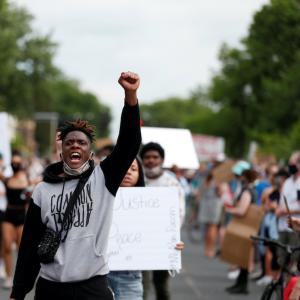
Protesters gather at the scene where George Floyd was killed in Minneapolis. May 26, 2020. REUTERS/Eric Miller
Remember, Lord, what happened to Ahmaud Arbery, Breonna Taylor, and George Floyd;
look and see the disgraceful way their bodies were treated.
Our inheritance of the image of God in every human being
has been co-opted and denied by others.
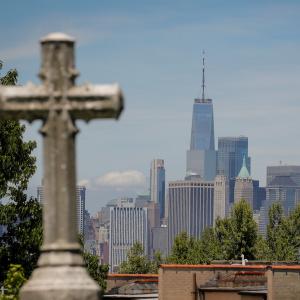
A view of One World Trade Center and lower Manhattan from The Green-Wood Cemetery, during the outbreak of the coronavirus in Brooklyn. May 27, 2020. REUTERS/Brendan McDermid
The need for lament could not be more urgent. The painful reality of the loss of more than 100,000 American lives requires the response of lament. However, a genuine corporate lament seems to have eluded many Americans, even those in the church. Lament is a biblical practice that has been long-neglected in the American church.
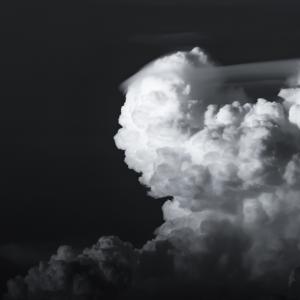
Lament, much like our understanding of salvation, ties my suffering with those around me. Christian traditions too distant from experiences of collective marginalization will have trouble penning laments about deliverance from shared sorrow. We need practices of solidarity that reveal those who are unseen in our world starting with the cries in our worship, followed by the witness in our deeds. Yet laments that do not incorporate the collective experience fail to produce practices that could help us survive in spaces of vulnerability and communal loss.

The body of a deceased person is prepared to be transferred at the Brooklyn Hospital Center, during the outbreak of the coronavirus disease (COVID-19) in Brooklyn. April 28, 2020. REUTERS/Brendan McDermid
The United States surpassed 100,000 deaths related to the novel coronavirus on Wednesday.
It’s a staggering number representing nearly a third of the 353,011 COVID-related deaths worldwide. In the U.S., more Americans have died of the virus than in the Iraq, Afghanistan, Vietnam, and Gulf wars combined.

A small group attends a graveside service at the State Veterans Cemetery amid the coronavirus outbreak in Middletown, Conn., May 13, 2020. REUTERS/Brian Snyder/File Photo
As we passed the horrifying milestone of 100,000 American deaths to the coronavirus, we’ve started using the hashtag #Lament100k to urge people to pause — to lament. Of course, the sentiment falls short. As a friend said to me, we can’t abbreviate all these lives; we have to try to feel all one hundred thousand of them.
The coronavirus has forced a global sabbath. Will it also lead to a global Jubilee?
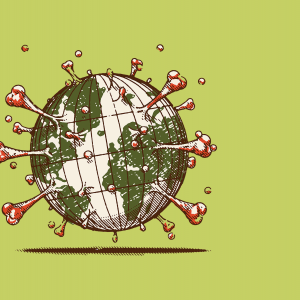
Illustration by Michael George Haddad
WE DON'T KNOW the full extent of the coronavirus pandemic. We know of the many who have died as a direct result of infection. We know that whole countries have turned on a dime to shield themselves from the shadow of death as it passes over. We don’t know where it will lead.
In the wake of Hurricane Katrina, Rebecca Solnit wrote, “Horrible in itself, disaster is sometimes a door back into paradise, that paradise at least in which we are who we hope to be, do the work we desire, and are each our sister’s and brother’s keeper.” Solnit reminds us that disasters and plagues sometimes signal liberation.
COVID-19 has forced the human community into mourning. In our retreat from the work-a-day world, it has imposed a global sabbath and Jubilee. Staring into this “cruel scourge,” as John of Ephesus described the Justinian plague in the year 545 C.E., can we also see that another world is possible?
The Jubilee legislation found in Leviticus 25 lays out a vision for “social and economic reform unsurpassed in the ancient Near East,” according to Robert K. Gnuse. The Jubilee laws declared that Yahweh was the rightful owner of all the earth, and therefore all Israelites—rich and poor—have an equal right to its abundance, within limits. In an economic system based on land and its produce, this was a radical transformation. The legislation undercut wealth disparities by preventing land speculation and by mandating debt forgiveness and interest-free loans. Finally, it ordered the release of the enslaved and those in debtors’ prison.